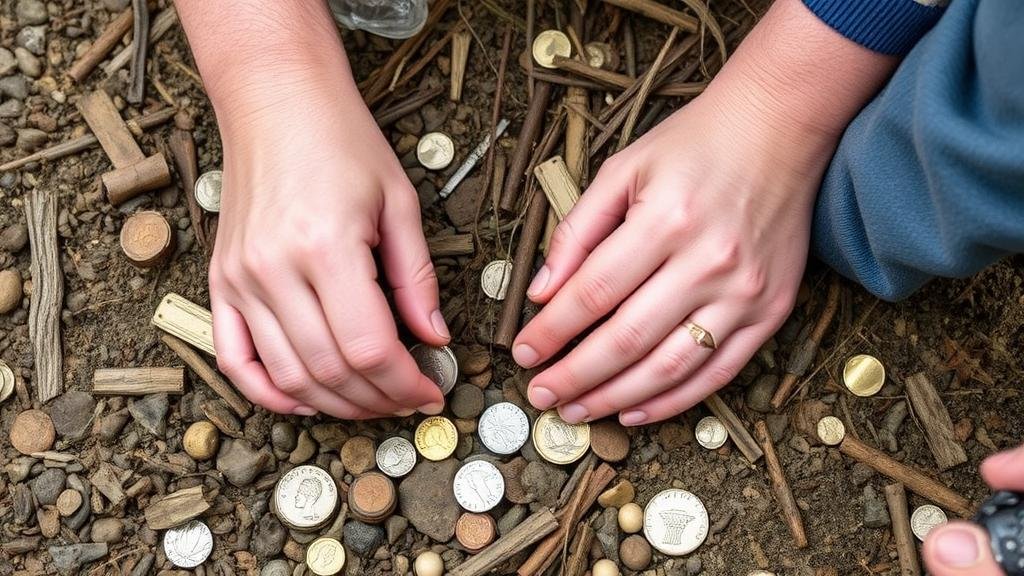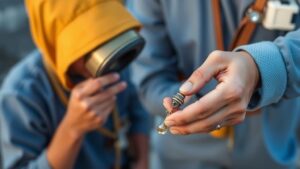Hunting for Rare Coins and Relics in Old Pond Beds
Hunting for Rare Coins and Relics in Old Pond Beds
The allure of hunting for rare coins and relics has captivated enthusiasts for centuries. Among various terrains where these treasures can be found, old pond beds represent a particularly promising site. These areas can yield a wealth of artifacts that tell stories of the past, including coins, tools, and other personal items. This article explores the historical significance, methods of exploration, and legal considerations involved in hunting for treasures in old pond beds.
The Historical Significance of Old Pond Beds
Pond beds serve as valuable archeological sites that can unveil layers of historical context. Historically, ponds have been utilized for various purposes, including fishing, recreation, and as gathering spots in communities. As a result, they may hold not only items lost by individuals but also relics of societal activities.
- For example, the discovery of a small brass fishing lure in a pond bed could date back to the late 19th century, providing insight into the fishing practices of that era.
- Also, the finding of coins from different periods can inform researchers about trade routes and economic conditions of the time.
So, every artifact unearthed from an old pond bed contributes significantly to our understanding of the cultural and economic landscape of previous generations.
Techniques for Searching
Successfully hunting for coins and relics in old pond beds requires a methodical approach. following techniques are recommended:
- Metal Detectors: Using a metal detector is one of the most effective ways to locate buried coins and metal artifacts. Detectors equipped with discrimination settings can distinguish between different types of metals, allowing for targeted searches.
- Sifting and Screening: After identifying promising areas, sifting through the sediment can help recover smaller items that a metal detector might miss. Screens can catch valuable artifacts such as coins, buttons, and jewelry.
- Water Entry Techniques: In some instances, wading into the shallow portions of a pond may be necessary. Waterproof detectors and tools can facilitate this process while minimizing the possibility of losing items during recovery.
When engaging in these techniques, patience is crucial. It can take hours or even days to unearth valuable objects, but the potential rewards can make the effort worthwhile.
Case Studies
Numerous examples from around the world illustrate the rewards of hunting in old pond beds. One notable case occurred in 2009 when a group of enthusiasts in New Jersey uncovered over 100 rare coins dating back to the Colonial period in what was once a trading pond. This discovery not only provided valuable insight into the region’s trading history but also attracted significant academic interest.
Similarly, in 2017, a divers team in a Scottish pond recovered wartime relics, including military medals and personal effects from World War II soldiers. The finding led to an exhibition at a local museum, highlighting the importance of preserving such artifacts.
Legal Considerations
Before embarking on an exploration, it is essential to be aware of the legal frameworks governing treasure hunting in your area. Regulations can vary significantly between countries and even states. In the U.S., the Hobby Protection Act requires transparency in the sale of coins, while local laws may dictate permissions required for treasure hunts on private or public lands.
- It is advisable to seek landowner permission where applicable before starting any expedition.
- Obtaining the necessary permits, especially in areas deemed archaeological sites, is critical to avoid legal repercussions.
Educating oneself about the relevant laws is as crucial as acquiring the right tools for a successful treasure hunt.
Actionable Takeaways
Embarking on a treasure hunt in old pond beds can be a rewarding experience that combines history, adventure, and the thrill of discovery. Here are some actionable takeaways for prospective treasure hunters:
- Research local history to understand the potential historical relevance of the pond.
- Invest in quality metal detecting equipment that suits your specific needs.
- Engage with local treasure hunting groups to share knowledge and experiences.
- Always comply with local laws and obtain necessary permissions before exploring.
With careful planning and a respectful attitude toward historical artifacts, you may unearth remarkable treasures that enhance our understanding of the past.



